Themed Week Process Optimization: Communication between machines – An opportunity for the alcohol-free beverage industry?

The real and virtual worlds are becoming more and more interwoven. In the beverage industry, a network of machines is bringing the Fourth Industrial Revolution, or Industry 4.0, to life – and having a dramatic effect on production and consumption processes in the alcohol-free beverage industry.
Most plants in the beverage industry are already computer-controlled, but a new feature of Industry 4.0 is that in an interconnected factory, machines communicate with one another. Machines also have “digital twins” in the cloud – that is, digital images of real-world machines that are created and extended simultaneously with their real-world counterparts. The use of these digital twins can simulate changeover procedures and the product flow over the plant’s entire life cycle, so that, for example, new programming can be tested and optimized risk-free until it is suitable for a real-world plant. It is also possible to create a virtual image of a production line that is a few seconds ahead of its real-world counterpart. This ensures high decision-making reliability and allows for undisturbed operation.
Self-sufficient, interconnected machines making decisions
In theory, the future of bottling and packaging alcohol-free beverages could look something like this: Microchip packs communicate with filling and packaging machines and give instructions on how they are to be filled and packaged. Thanks to an army of sensors and reams of measuring data, the machines are able to predict exactly when and what kind of maintenance is needed. They can even make decisions independently through networks, as the following example shows: A newly created pallet is waiting to be loaded. The robots that carry out this task communicate with each other, and one of them says (figuratively): “I can do it because I am closest to the pallet.” Given these possibilities, it’s no surprise that according to a study by the Boston Consulting Group, one in four jobs in the industry will be taken over by smart machines by the year 2025.
Industry 4.0 in the future: Individuality takes center stage
Machine manufacturers are already thinking about how they can embrace the digital future. Norman Gierow, Head of Global Product Management Market at SIG Combibloc, says: “The driver for one customer in creating intelligent networking solutions in his or her own company might not necessarily apply to another customer. We work closely with the customer to find the right solution, and then implement it. In the process, we need to work together as part of an interdisciplinary team just like our systems do.”
In the future, Gerhard Schubert, a manufacturer of packaging machines, will equip its TLM packaging machines with a data box that is connected to the digital platform Grips.world. Customers, suppliers, TLM machines and all Schubert Group employees will be able to access them via any web browser, whether on PCs, tablets or smartphones. “Data analysis through Grips.world allows us to identify problems before they even occur, preventing a negative impact on our customers’ production lines,” says Marcel Kiessling, Managing Director of Sales, Service and Marketing.
The cloud delivers a quick diagnosis of consumer behavior
The industry’s digital concepts even address consumers. For example, the glass maker Rastal collaborated with Telekom Deutschland to develop the hospitality solutions SmartGlass and SmartBar for the cloud. Special types of glass are equipped with chips that use NFC wireless technology to communicate with a reader on the SmartBar. This smart counter is connected to Telekom’s Cloud of Things via a mobile communications system. All the data that is read out is stored here and prepared for the restaurateur. The information can also be linked with other key facts, such as which drinks are particularly popular on sunny days, or which day of the week alcohol-free beverages are most often served. This new technology can provide all the answers we need.
The future of the beverage industry: Ordering at the touch of a button
Another topic that will surely shape the future of the alcohol-free beverage industry is that of “everything and anything at the push of a button.” Amazon Dash Buttons – which look like USB sticks – already make this possible. Using an Amazon app, a dash button is programmed on a specific product – for example, a specific brand of mineral water. The dash button can place an order on Amazon at the push of a button using a WiFi Internet connection. However, dash buttons could also become redundant – for example, if the refrigerator can order a standard beverage assortment itself. Even so, the outcome for the beverage industry remains the same: New distribution channels pose new challenges.
Keeping up-to-date and taking advantage of the opportunities offered by Industry 4.0
The digitalization of production for the non-alcoholic beverage industry means many new challenges. It’s important to stay up-to-date and, above all, to recognize new opportunities. That’s true of large beverage companies as well as SME businesses. Prof. Wolfgang Henseler, Managing Creative Director of Sensory-Minds, said, “If you don’t see the paradigm change coming, you’re going to be out of the running pretty fast.”
Industry 4.0 will be a hot topic at drinktec 2017, because many new concepts and developments are expected to emerge in this area. The drinktec forum will feature a strong focus on Industry 4.0. Dr. Tobias Voigt, co-chair in packaging technology at the Technical University of Munich, will be talking about the Robofill model project for flexible automated filling in batch size 1.
